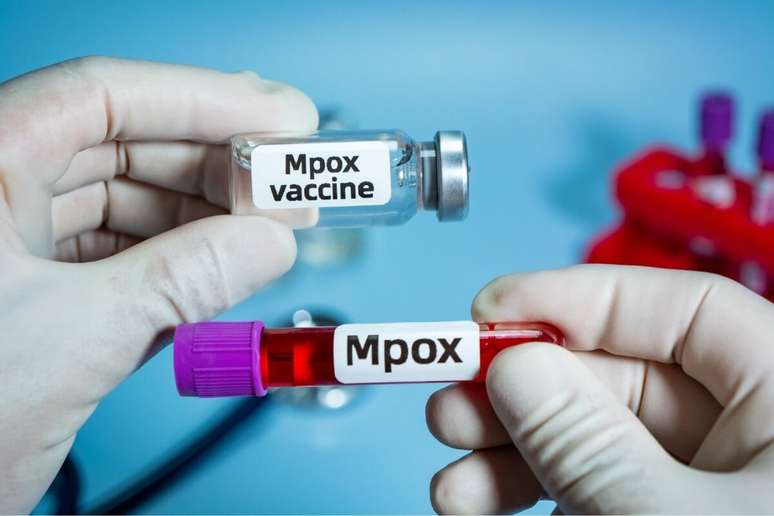Learn about the symptoms, treatments and ways to prevent ancient monkeypox
After the World Health Organization (WHO) declared Mpox a public health emergency, many rumors about the disease have emerged, generating doubts among the population. Among these speculations, one of the rumors that has emerged refers to the possibility of a new pandemic.
However, according to infectious disease specialist Dr. Evaldo Estanislau, professor at São Judas University and director of academic research at Inspirali (a medical education ecosystem), the state of emergency was declared precisely to speed up containment procedures. After all, although less serious and with a less lethal impact, this disease has the potential to spread very quickly.
Knowing this, Dr. Evaldo Estanislau clarifies the main doubts on the subject. Check it out!
1. What is Mpox?
An ancient monkeypox, Mpox is a illness viral transmitted by intimate contact with a natural reservoir from nature, especially small animals and monkeys. This virus is transmitted to the human species and is transmitted in the African continent.
2. Why was a state of international emergency declared?
We recently had an epidemic from the African continent that quickly spread around the world and was initially controlled. But now a new variant of the virus has emerged, with greater transmissibility, that is, it is transmitted more easily. The disease spread from the Democratic Republic of Congo, spread to African countries, then to neighboring countries and quickly became a global emergency with a very high number of cases.
For this reason, the WHO has declared a state of emergency to raise awareness and speed up procedures to contain the spread of the disease, accentuated by the new variant. It is important to clarify that it is one thing to declare an emergency for a serious disease with great risk for the general population, and another to declare an emergency to speed up containment procedures. This is because, although it is a less serious disease, its potential refers to rapid spread through contact to specific, more vulnerable groups. In general terms, this emergency is a containment measure.
3. Can Mpox be fatal?
Smallpox is a less serious but extremely unpleasant disease. Yes, it can exceptionally have more serious forms and this new variant can eventually cause death. However, in the absolute majority of cases, it is a condition of manifestation skin mucus. In other words, people will experience rashes, sores that last from a few days to weeks, but are mostly limited to the skin and mucous membranes of our body.
After this period of 4, 6, at most, 8 weeks of evolution, these tend to regress, to heal and people, at most, will have scars. So, it is very different from a respiratory disease. It is not a negligible disease. On the contrary, it has its complexity, but it has a less lethal impact.
4. What is the best form of prevention?
One of the main reasons for the emergency is precisely to accelerate the production of vaccines. We have vaccines available, but few production centers and in small quantities. Furthermore, an epidemiological characteristic of the disease is that it is transmitted through skin or mucosal contact with the lesion, and this contact is not just any contact, it requires long-lasting and intimate contact, that is, it affects a population with greater vulnerability and priority to receive the vaccine.
In addition, other commonly used objects, such as bedding, towels, and clothing, if they come into contact with the lesions, transmit the disease. Therefore, in addition to the most vulnerable group, crowded situations, such as crowded public transport, where one is very close to other people, can, even if it is not the preferred mechanism, increase the transmission of the disease, especially if there is contact with lesions.

5. Why is mass vaccination not recommended?
The reason why vaccination is not recommended for everyone is, firstly, epidemiological, that is, there are clearly more vulnerable groups. Secondly, there is an operational reason why it is not possible to do so. Vaccine for everyone.
In addition, people over 50 have probably already received the smallpox vaccination, which provides some cross-immunity. Therefore, the WHO is right in suggesting this recommendation: the disease has spread rapidly and this strategy will allow us to vaccinate the most vulnerable group more quickly and in sufficient quantities.
6. What are the main symptoms of the disease?
Mpox is a disease that begins with symptoms such as malaise, fever and spots on the skin. These signs turn into vesicles, that is, they rise, taking on the appearance of a drop of liquid. They can be very discreet and difficult to see, especially in areas such as the genitals or inside the mouth, or they can spread throughout the body, forming multiple skin bumps. When you notice any changes in your skin, it is best to consult a doctor.
7. How is the treatment performed?
The lesions should last a few days or even a few weeks and will evolve into a sore, a crust and gradually disappear. It is very important that the diagnosis is made by a doctor in a specialized laboratory, who will take material from the lesion to use the PCR technique, allowing the identification of the virus. Once the diagnosis is made, treatment is symptomatic.
The person must be careful to ensure that these wounds do not become infected, which, for the elderly, those with chronic diseases or those who are immunocompromised, can represent a serious complication. There are antivirals, but they are medicines very expensive, inaccessible to most people. For this reason, in practice, what we do is isolate patients until the lesions have completely resolved, to avoid transmission to others, and treat with symptomatic drugs, in addition to fighting any secondary infections.
8. Why was the disease renamed and no longer known as monkeypox?
We have to be very careful about what we label. A disease related to monkeys can give rise to misinterpretations and even possible acts of cruelty to animals. Scientifically, since today the transmission mechanism is between humans, and not from monkeys, it was considered appropriate to adapt the name to Mpox, which is the most correct name and represents the current state of the disease.
By Juliana Antunes
Source: Terra
Ben Stock is a lifestyle journalist and author at Gossipify. He writes about topics such as health, wellness, travel, food and home decor. He provides practical advice and inspiration to improve well-being, keeps readers up to date with latest lifestyle news and trends, known for his engaging writing style, in-depth analysis and unique perspectives.









